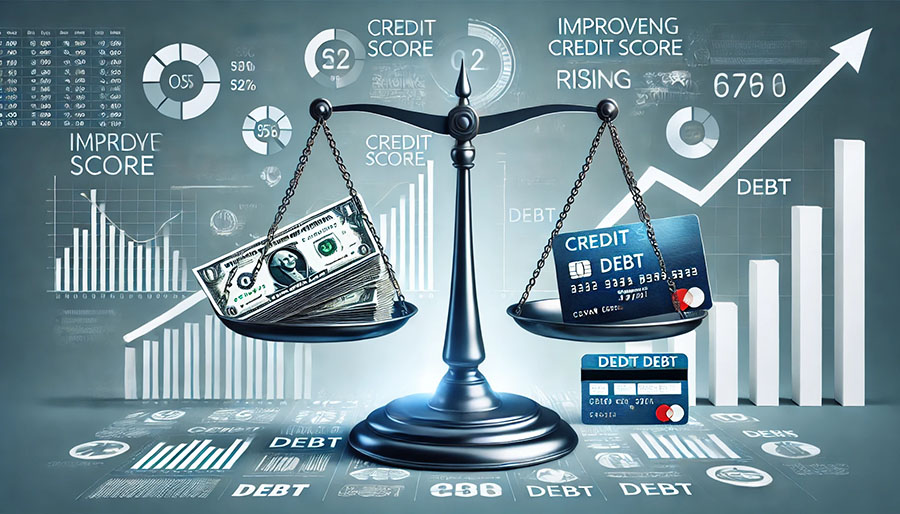Practical Tips for Reducing Credit Card Debt

Practical Tips to Reduce Credit Card Debt and Save on Interest
Managing credit card debt is a common challenge for many people. With high-interest rates and the ease of overspending, it’s easy to find yourself buried in debt. However, with the right strategies, you can reduce your credit card debt and regain financial stability. In this article, we’ll explore practical tips for lowering your debt, staying out of it, and improving your overall financial health.
1. Understand Your Debt Situation
The first step in reducing credit card debt is understanding exactly how much you owe. Take an honest look at your statements, write down the balances, interest rates, and minimum monthly payments. Organize your debts in a list to give you a clear picture of your financial situation.
2. Create a Budget
Budgeting is one of the most effective tools for managing finances and tackling debt. Creating a detailed budget allows you to track your spending, allocate funds toward debt repayment, and prevent overspending. Start by listing your monthly income and essential expenses like rent, utilities, groceries, and transportation. Then, identify areas where you can cut back and direct the extra money toward your credit card payments.
3. Focus on High-Interest Debt First
Credit cards often come with high interest rates, which can make your debt grow quickly if you only make minimum payments. Focus on paying off the credit card with the highest interest rate first, while continuing to make minimum payments on your other cards. This approach, often called the avalanche method, saves you the most money in interest over time.
Another method, known as the snowball method, involves paying off the card with the smallest balance first to gain a psychological boost. Whichever method you choose, staying consistent is key.
4. Avoid New Debt
One of the most important rules for reducing credit card debt is to stop adding to it. While it may seem obvious, many people continue to use their credit cards even as they try to pay them down. Put your cards away or freeze them to make them harder to use. Consider using cash or a debit card to avoid accumulating more debt.
5. Consolidate Your Debt
If you’re dealing with multiple credit cards and high interest rates, consolidating your debt could be a good solution. Debt consolidation allows you to combine all your credit card balances into one loan with a lower interest rate. Options include personal loans, balance transfer credit cards, or even a home equity loan. Keep in mind that consolidation isn’t a cure-all, but it can make your payments more manageable and reduce the overall interest you pay.
6. Negotiate Lower Interest Rates
Many people don’t realize that you can often negotiate lower interest rates with your credit card company, especially if you’ve been a long-time customer with a good payment history. Simply calling your credit card issuer and asking for a lower rate may result in lower monthly payments and reduced interest costs.
7. Use Windfalls Wisely
If you receive any unexpected income, such as a tax refund, bonus, or inheritance, use it to pay off a significant portion of your credit card debt. While it can be tempting to spend extra money on other things, applying windfalls toward your debt will help you reach your goal faster and save on interest in the long run.
8. Set Up Automatic Payments
Missing a payment can lead to late fees and higher interest rates. To avoid this, set up automatic payments to ensure you’re at least paying the minimum amount on time every month. Automatic payments help you stay on track and protect your credit score from the negative effects of late payments.
9. Track Your Progress
Paying off credit card debt can feel like a long, uphill battle, but tracking your progress can keep you motivated. Set milestones for yourself, such as paying off 25% or 50% of your debt, and celebrate each achievement. Whether it’s a small personal reward or simply acknowledging the progress, these milestones will help you stay focused on your end goal.
10. Seek Professional Help if Necessary
If your credit card debt feels overwhelming and you’re not making progress, consider seeking help from a professional. Credit counseling agencies can help you create a debt management plan and negotiate with creditors on your behalf. Just be sure to choose a reputable, non-profit agency to avoid scams.
By following these practical tips, you can begin to reduce your credit card debt and improve your financial health. Remember, paying off debt takes time and patience, but with consistent effort, you’ll be able to lower your balances, save on interest, and eventually become debt-free.



